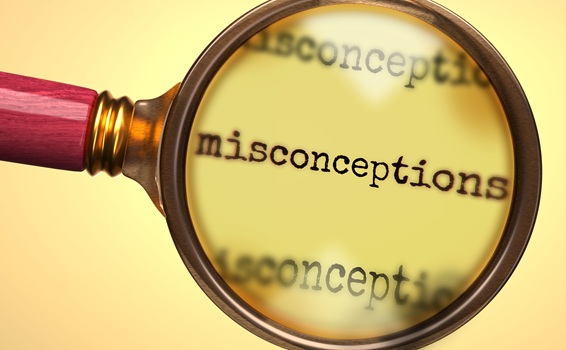
Although a reverse mortgage can be a practical option for retirement planning, many homeowners still hesitate. Common myths and lingering doubts often cause people to dismiss this financial tool before understanding how it works. That’s why it’s time to clear the air.
This follow-up blog explores the most frequent misconceptions about reverse mortgages and sheds light on the facts. By the end, you’ll know whether this solution deserves a second look—and why it might be more helpful than you thought.
- A Reverse Mortgage Doesn’t Mean Giving Up Ownership
- You Can Still Leave Your Home to Heirs
- Reverse Mortgage Isn’t Just for the Desperate
- The Fees May Be Higher, But There’s a Reason
- Monthly Payments Aren’t Required, But Ongoing Costs Still Exist
- Reverse Mortgage Doesn’t Work for Every Property Type
- You Can Use Reverse Mortgage Funds for Almost Anything
A Reverse Mortgage Doesn’t Mean Giving Up Ownership
One of the biggest myths about this mortgage is that you lose ownership of your home. However, that’s not the case. You remain the titleholder, just as you would with a traditional mortgage. The lender places a lien on the property in Columbia SC, which allows them to recover the loan amount later, but you still control the home.
Because of this, you continue to benefit from home appreciation, and you have the option to repay the loan or refinance it if your situation changes.
You Can Still Leave Your Home to Heirs
Many people fear that choosing this mortgage means their family won’t inherit the property. This assumption is misleading. While the loan does need to be repaid when the homeowner passes away, heirs have options.
For example, they can sell the home and use the proceeds to pay off the balance. If the sale brings in more than what’s owed, the remaining funds stay with the family. On the other hand, if the home’s value has decreased, the lender only collects what the property is worth—not a penny more—thanks to the loan’s non-recourse nature.
Reverse Mortgage Isn’t Just for the Desperate
Another common belief is that only financially desperate people consider reverse mortgages. That couldn’t be further from the truth. Today, many financially stable homeowners use reverse mortgages as a strategy to improve cash flow, reduce portfolio withdrawals, or delay Social Security benefits.
In fact, some financial advisors suggest incorporating a reverse mortgage into a long-term retirement plan, especially for those with significant home equity. This move can offer added flexibility and reduce financial pressure during uncertain economic times.
The Fees May Be Higher, But There’s a Reason
 Home equity in Columbia SC
Home equity in Columbia SCYes, it’s true that a reverse mortgage in Columbia SC often comes with higher fees than a traditional loan. However, those costs serve a purpose. They cover insurance that protects both the borrower and the lender, ensuring that you never owe more than the home is worth. This feature adds security and peace of mind.
In addition, fees include required counseling, which helps prevent uninformed decisions. While the upfront costs might seem steep, they are built into the loan and don’t require out-of-pocket payment.
Monthly Payments Aren’t Required, But Ongoing Costs Still Exist
One of the most appealing aspects of a reverse mortgage is the absence of monthly payments. Still, some people assume this means no financial responsibilities at all. That’s not accurate.
Borrowers must continue paying property taxes, insurance, and maintenance expenses. Failure to keep up with these obligations can result in default. Fortunately, lenders now assess a borrower’s ability to cover these costs before approving the loan, making the process safer and more responsible.
Reverse Mortgage Doesn’t Work for Every Property Type
Although the idea of tapping into home equity sounds attractive, a reverse mortgage isn’t available for every type of property. Eligible homes must be the borrower’s primary residence. Vacation homes and investment properties don’t qualify.
Additionally, certain loan types—like the Home Equity Conversion Mortgage (HECM)—have value limits. So if your home exceeds a specific threshold, a proprietary mortgage might be more appropriate.
You Can Use Reverse Mortgage Funds for Almost Anything
Another common misconception is that the mortgage funds come with spending restrictions. While some single-purpose loans limit usage, most reverse mortgage programs allow you to use the money however you see fit.
Some homeowners use the funds for medical expenses, home upgrades, or paying off existing debt. Others use the income to support adult children or simply enjoy a more relaxed lifestyle. The flexibility of how the funds can be received and spent is part of what makes this tool so valuable. Be sure to consult Reverse Mortgage Specialist for expert advice.
Call Reverse Mortgage Specialist now to explore how a reverse mortgage could improve your retirement options. Speak with a trusted expert who can guide you through the facts, clear up confusion, and help you decide if this path is the right fit for your future.

No comments:
Post a Comment